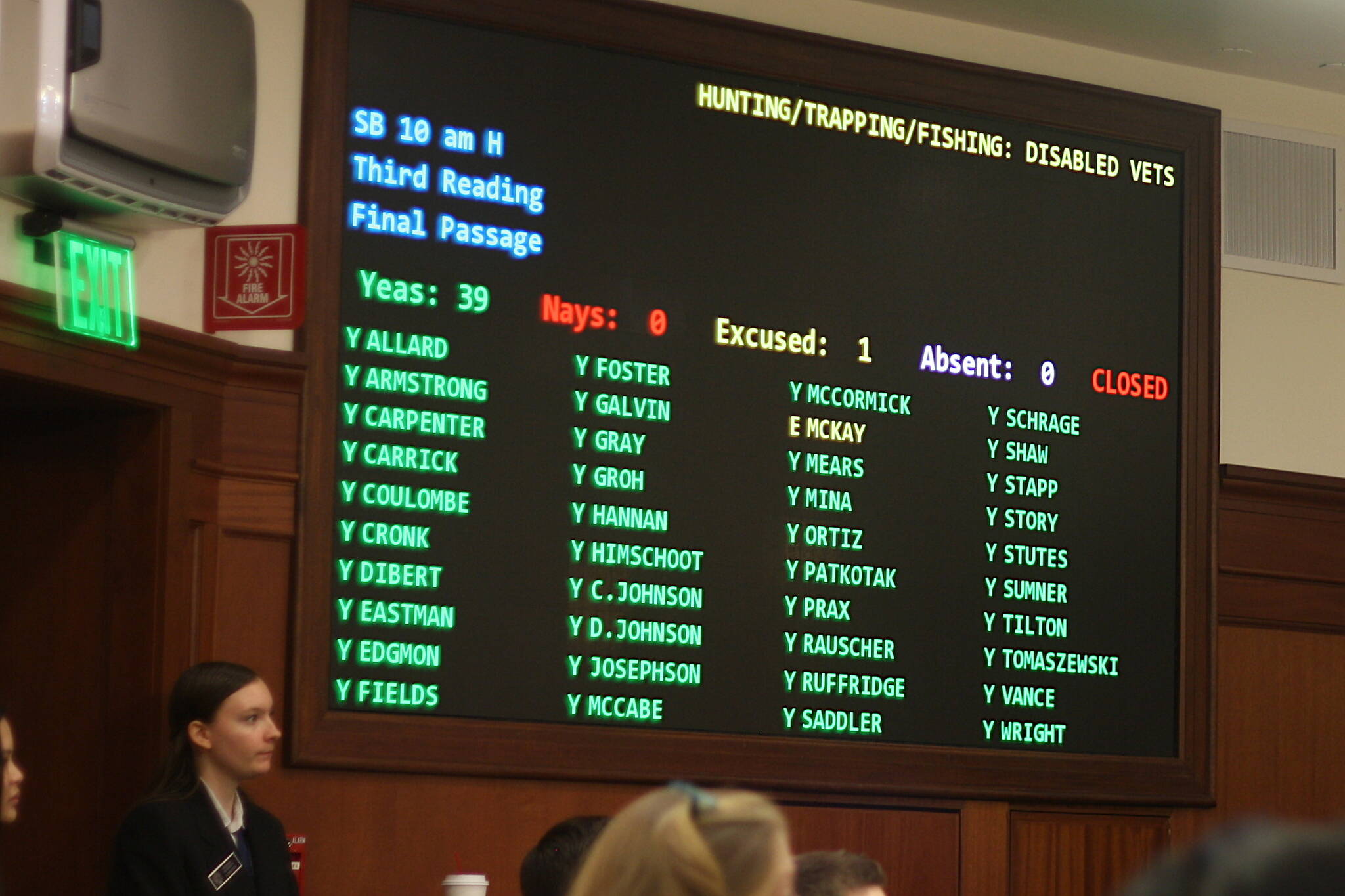The first potential new law to clear both the state House and Senate this session is Sen. Jesse Kiehl’s bill giving disabled veterans free lifetime trapping licenses, a no-cost measure whose only apparent “controversy” is the number of legislators declaring conflicts of interest due to being veterans or service members themselves.
Lifetime licenses would also be available to current National Guard and reserves members, who currently must apply for them annually.
The House passed the bill by a 39-0 vote Monday, with Anchorage Republican Tom McKay an excused absence. The new policy would officially cost the state nothing, and Kiehl and other supporters said it is essentially a corrective measure to existing law that already gives free hunting and fishing licenses to such veterans and service members.
A second bill that has already passed the Senate, rejecting pay hikes for the governor and other top executive branch officials (SB 86), is also scheduled for floor debate Monday. It was removed from the morning calendar and returned to the House Finance Committee for a brief hearing to allow for public testimony during the afternoon (none was provided), with floor debate scheduled Monday evening.
Both chambers have also passed one resolution to date, asking the Biden administration to approve ConocoPhillips’ proposed $6 billion Willow oil project in the National Petroleum Reserve-Alaska. A decision is expected to be issued as early as this week.
The non-controversial nature of the bill from Kiehl, a Juneau Democrat, was evident during Monday’s floor session as Rep. Mike Cronk, a Tok Republican, provided the overview of the proposal before the vote.
“I’m not really sure why the trapping part was left out” of current law, he said. But he called trapping an essential part of Alaska’s historical culture and “for those who have been injured in our service this is a small token of our appreciation.”
The “debate” about the bill ended up being largely humorous, with eight members asking to be excused from voting due to a conflict of interest since they might be eligible for free trapping licenses, all of which were immediately denied with the objections that are pro forma in such situations. By the end even the formalities of full declarations were abandoned as Rep. Kevin McCabe, a Big Lake Republican, a stood briefly and said simply “Madam Speaker, same thing.”
“Thank you to all of our military veterans on our floor today,” House Speaker Cathy Tilton, a Wasilla Republican, said as the declarations neared their conclusion.
The legislation, Senate Bill 10, will be Kiehl’s third bill to become law if signed by Gov. Mike Dunleavy, with the other two enacted in August 2021. One makes it easier for landowners to deal with abandoned vehicles on their property by initiating the title takeover process in 30 days instead of six months. The other allows medical experts to give advice to doctors without being liable for malpractice liability, intended so rural providers can contact specialists in urban hubs for informal and unpaid consultation.
Of three other bills introduced this session by Kiehl, the one with the most activity is Senate Bill 12, which would establish an address protection program for victims of sexual assault and domestic violence, peace officers and correctional officers, and their families. The bill advanced out of the Senate State Affairs Committee last week and is scheduled to be heard by the Judiciary Committee on Wednesday, with a Finance Committee referral still pending.
• Contact reporter Mark Sabbatini at mark.sabbatini@juneauempire.com

